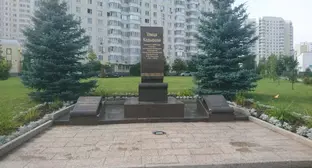02 June 2014, 09:00
Week in the Caucasus: review of main events of May 26 to June 1
Political crisis in Abkhazia that ended in abdication of President Alexander Ankvab; reports of Chechen residents about funeral of locals who perished in warfare in the Donetsk Region of Ukraine; conviction of Anar Mamedli who conducted monitoring of presidential election in Azerbaijan; conviction of Kontantin Shirshov, a State Duma MP from the Krasnodar Territory, for an attempted fraud; abolition of direct election of heads of towns and districts of Volgograd Region; "Extraordinary Congress of Dagestani Nations" urging Russian President to dismiss region head, – see the review of these and other events in the Caucasus during the week of May 26-June 1, 2014, prepared by the "Caucasian Knot".
Political crisis in Abkhazia crowned with resignation of President Alexander Ankvab
Last week, Abkhazia faced a major political crisis. On May 26, at a briefing in Sukhumi, the Coordinating Council of oppositional political parties and public organizations of Abkhazia, which had earlier submitted a number of demands to the President, said that the republic is ripe for reforms. On the following day, May 27, opposition supporters staged a thousands-strong demonstration, demanding resignation of President Ankvab and his Government. Opposition leaders held talks with Ankvab, during which he gave his prior consent to dissolve the Cabinet and dismiss the general Public Prosecutor and heads of three districts; however, after the start of the assault of the building of president's administration, the negotiations were stopped; and the President announced that he refused to make decisions under pressure. On May 28, the press published President Ankvab's comments qualifying the events as an attempted putsch.
In the evening on May 29, the above Coordinating Council announced the creation of the Interim Council of National Trust. At 9:00 p.m., the Abkhazian Parliament held a session with the quorum of 21 MPs out of 35, and asked the President to resign. On May 30, Ankvab said that he was not going to abandon his post and would not dismiss the Abkhazian Prime Minister Leonid Lakerbaya, despite the Parliament's resolution. On May 31, the MPs voted to appoint the Speaker Valery Bganba as Acting President of Abkhazia. They also appointed the early presidential election for August 24 this year. In his turn, Alexander Ankvab said that the appointment of Acting President is contrary to the republic's Constitution, but in the evening on June 1 he announced his resignation.
Chechen residents report participation of fellow countrymen in warfare in Donetsk Region
Locals report that last week, on May 28-29, some 35 to 45 bodies of Chechen natives, who perished in the armed actions in the Donetsk Region of Ukraine, were brought home. On May 27, the Donetsk Mayor Alexander Lukyanchenko said that city hospitals were still treating eight Russian citizens, including residents of the cities of Grozny and Gudermes. Several Chechen combatants killed in Ukraine were buried in Chechnya without publicity, local residents have reported.
On May 28, John Kerry, the US Secretary of State, in his telephone conversation with the Russian Foreign Minister Sergey Lavrov, expressed his concern about the involvement of people from Chechnya in the conflict in Eastern Ukraine; and a few days earlier, on May 26, CNN showed a story, in which one of the armed men, fighting for the self-proclaimed People's Republic of Donetsk, gave an affirmative answer to the question whether the detachment, in which he had served, belonged to the Chechen Ministry of Internal Affairs (MIA). The information about the presence of Chechen special units in Eastern Ukraine is "absolutely untrue," Ramzan Kadyrov, the head of the Chechen Republic, said on May 30. At the same time, as he said, up to 14 natives of Chechnya, one of whom was killed and four wounded, are in the combat zone in Ukraine.
Azerbaijan convicts Anar Mamedli, observer at presidential election
On May 26, the Baku Court of Grave Crimes passed a conviction to Anar Mamedli, the head of the Centre for Election Monitoring and Democracy Training (CEM&DT), and to two other activists – Bashir Suleimanly and Elnur Mamedov. The court sentenced Mamedli to 5.5 years and Suleimanly – to 3.5 years in prison. Mamedov received 3.5 years of conditional imprisonment. Mamedli and his colleagues were charged with tax evasion, illegal entrepreneurship and abuse of office, as well as with large-scale embezzlement and official forgery. In 2013, the CEM&DT monitored the presidential election in Azerbaijan and revealed serious violations. The defence in Mamedli's case intends to appeal against the verdict at the Court of Appeal, stating the political nature of the case. The Ambassador Janez Lenarcic, the Director of the Office for Democratic Institutions and Human Rights (ODIHR) of the OSCE, has also condemned the sentencing of Anar Mamedli.
Kontantin Shirshov, State Duma MP from Krasnodar Territory, sentenced to five years in prison
On May 26, the Moscow City Court (MCC) sentenced Konstantin Shirshov, an MP of the Russian State Duma, elected in the KrasnodarTerritory from the Communist Party of the Russian Federation (CPRF), to 5 years in prison for an attempted fraud of 7.5 million euros. According to investigators, Shirshov tried to commit a fraud by received a large sum from a businessman in exchange for a promise to put him on the list of candidates for the State Duma. Shirshov was stripped of his parliamentary immunity, but at the trial refused to plead guilty. His advocates intend to challenge the verdict. According to Vadim Solovyov, the head of the legal service of the CPRF, Shirshov's party colleagues intend to provide him with legal assistance.
Volgograd Duma abolished direct election of heads of regional towns and districts
On May 29, the MPs of the Volgograd Regional Duma adopted, in the second and final reading, the law, which cancelled the direct election of heads of towns and districts. The law assumes that district representative bodies shall include the heads and deputies of settlements' representative bodies elected out of them. Heads of settlements are elected at municipal elections and head local administrations. Heads of municipal and urban districts are elected by district dumas from among themselves and act as chairpersons thereof. The new law was opposed by CPRF activists. On May 26 and 29, aVolgograd resident Boris Pylin held solo pickets against the innovation. Local experts believe that the new law is an attack on the voting rights of residents of the region and will redistribute the financial flows in the presidential race; while the authors of the initiative claim that it is aimed at building the vertical of power.
Delegates of "Extraordinary Congress of Dagestani Nations" ask Russia's President to dismiss regional head
On May 31, Makhachkala hosted the "Extraordinary Congress of Dagestani Nations", where its delegates discussed the socio-political situation in the region and asked President of Russia to dismiss the republic's leader Ramazan Abdulatipov. The Congress was attended by 271 representatives of Jamaats from different districts of the republic, said Ruslan Rasulov, the head of the organizing committee and the Chairman of the Dagestani Regional Public Organization "Union for Defence of Rights and Freedoms of Nations, Humans and Citizens". The delegates offered President Putin a list of three Dagestani politicians to make his choice of the republic's leader. The list includes Gadjimurad Omarov, the leader of the local branch of the "Spravedlivaya Rossiya" (Fair Russia) Party; Senator Ilyas Umakhanov, and Mayor of Khasavyurt Saigidpasha Umakhanov.
See earlier reports: Week in the Caucasus: review of main events of May 19-25, Week in the Caucasus: review of main events of May 12-18, Week in the Caucasus: review of main events of May 5-11, Week in the Caucasus: review of main events of April 28 to May 4.




